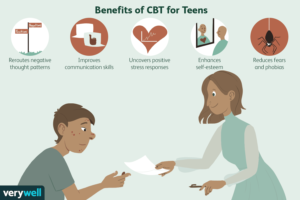Reasons Short-term Disability can be denied

Navigating the Maze: Understanding Reasons for Short-Term Disability Denials
Short-term disability (STD) insurance provides financial security when a qualifying medical condition temporarily prevents you from working. However, receiving approval for benefits isn’t always guaranteed. This comprehensive guide explores the common reasons why short-term disability claims can be denied, empowering you to understand the process, strengthen your application, and navigate potential appeals.
Demystifying Short-Term Disability: Understanding the Basics
Short-term disability insurance typically covers a portion of your income (often 60-80%) for a limited period (usually a few weeks to a year) when a serious illness or injury renders you unable to perform your job duties. While STD offers valuable support during challenging times, navigating the claim process can be complex.
Understanding Potential Denials:
Being aware of the reasons why your claim might be denied can significantly improve your chances of approval. Here’s a breakdown of some common culprits:
- Eligibility Requirements Not Met:
- Employment Status: Many STD policies require you to be actively employed at the time of your disability to qualify for benefits.
- Waiting Period: Most STD plans have a waiting period (often 7 or 14 days) before benefits begin to accrue. Ensure you meet the waiting period requirements before filing your claim.
- Minimum Coverage Duration: Some policies require your disability to last for a minimum duration (e.g., 7 days) before benefits become payable.
- Incomplete or Missing Information: Providing thorough and accurate medical documentation supporting your claim is crucial. Missing information can delay processing or lead to denial.
- Pre-Existing Condition: Some STD plans exclude coverage for pre-existing conditions if they contribute to your disability. Familiarize yourself with your policy’s pre-existing condition clause.
- Non-Qualifying Disability: Certain conditions or injuries might not be covered by your specific STD policy. Review your policy details to understand what qualifies as a disability for coverage.
- Failure to Follow Treatment Plan: If you don’t adhere to your doctor’s treatment recommendations, it might affect your eligibility for benefits.
- Returning to Work Too Soon: Some policies might require attending regular doctor’s appointments and obtaining written authorization before returning to work to continue receiving benefits.
- Suspicious Activity: If the insurance company suspects fraud or misrepresentation of your condition, they might deny your claim. Be honest and transparent throughout the application process.
Enhancing SEO with Visuals: Creating a flowchart illustrating the short-term disability claim process, highlighting potential denial points and next steps, can significantly enhance user engagement and provide a clear visual reference.
Building a Strong Case: Tips for Strengthening Your Short-Term Disability Application
Here’s how you can increase your chances of a successful STD claim:
- Know Your Policy: Thoroughly review your STD policy to understand eligibility requirements, covered conditions, and the claims process.
- File Promptly: Don’t wait to file your claim. Act as soon as your doctor deems you unfit to work.
- Gather Comprehensive Documentation: Work with your doctor to obtain detailed medical records outlining your diagnosis, treatment plan, and limitations due to your condition.
- Maintain Clear Communication: Keep your employer and insurance company informed about your condition and progress.
- Seek Guidance: Consult with an attorney specializing in disability insurance if you have concerns or face difficulties during the claims process.
By being proactive and well-prepared, you can significantly increase your chances of receiving short-term disability benefits.
Charting the Course: FAQ on Short-Term Disability Denials
Now that you’re armed with knowledge about potential denial reasons, let’s address some frequently asked questions (FAQs):
Q: What should I do if my short-term disability claim is denied?
A: If your claim is denied, review the denial letter to understand the specific reason. You typically have the right to appeal the decision.
Gather additional medical documentation or clarify any information that might have been missing in your initial application.
Consider consulting with an attorney specializing in disability insurance to navigate the appeals process.
Q: How long do I have to appeal a short-term disability denial?
A: The timeframe for appeals varies depending on your policy and state regulations. Typically, you have 30-60 days to submit an appeal.
Consult your policy documents or contact your insurance company for specific details regarding appeal deadlines.
Q: What happens during a short-term disability appeal?
A: The appeal process typically involves submitting additional documentation and potentially requesting an independent medical review. Be prepared to present any new evidence supporting your claim and the legitimacy of your disability.
Q: Can I sue my insurance company if they deny my short-term disability claim?
A: Yes, you might have the option to sue your insurance company if you believe the denial was wrongful. However, this is a complex legal process. Consulting with an attorney specializing in disability insurance is essential to determine if a lawsuit is the right course of action for your specific situation.
Q: What are some tips for preventing a short-term disability denial in the first place?
A: Here are some proactive steps you can take:
Maintain a good relationship with your doctor. Regular checkups and documented medical history strengthen your case.
Understand your employer’s STD plan and eligibility requirements.
Enroll in STD insurance when you’re healthy. Pre-existing condition limitations might apply if you wait until you’re already experiencing symptoms.
Keep copies of all paperwork related to your STD claim. This ensures you have a complete record for reference if needed.



